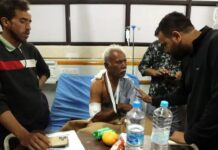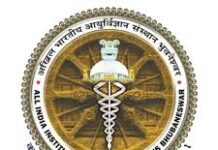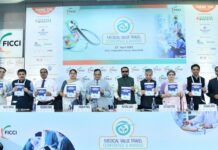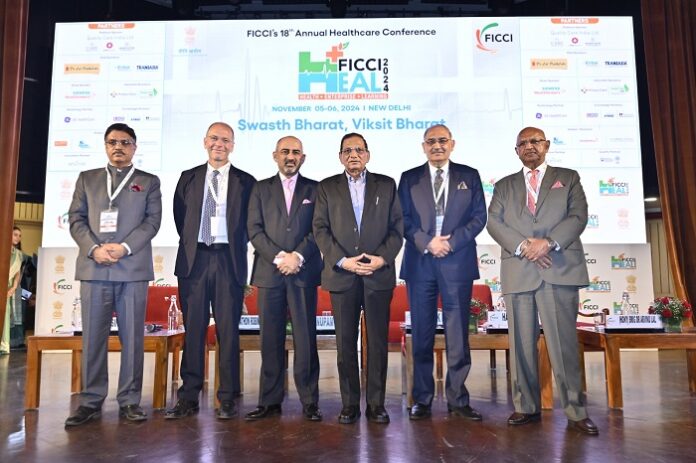Prof. V.K. Paul, a member of NITI Aayog, emphasized the government’s commitment to revitalizing the primary healthcare sector, aiming to build a future-ready system that supports the nation’s vision of “Viksit Bharat” by 2047. He stated, “We are not merely implementing a scheme; we are constructing a comprehensive primary healthcare infrastructure.”
Speaking at the ‘FICCI HEAL 2024’ event, Prof. Paul linked the concept of ‘Viksit Bharat’ to achieving a $32 trillion economy and raising per capita income from $2,500 to $18,000. He highlighted that a robust health sector will be foundational to this journey, stating, “The health sector must strive to outperform other sectors. I hope we collectively embrace the ideals of Swasth Bharat, Viksit Bharat, and Niramaya Bharat.”
As per the press release, Dr. Paul also discussed the integration of artificial intelligence in healthcare, emphasizing the importance of validating new technologies. He remarked, “AI for health leadership should originate from India. We aim for India to not only be the largest consumer of AI in healthcare but also the foremost creator.”
Furthermore, he addressed the government’s efforts to enhance the healthcare system, with goals to increase average life expectancy from 71 years to over 85 by 2047, alongside improving the physician and bed ratios. He noted the expansion of the Ayushman Bharat program to include senior citizens over 70 years, introducing the Ayushman Bharat Vay Vandana Card to provide dignity and capacity for elderly care.
In the session titled ‘Swasth Bharat, Viksit Bharat,’ Ms. L.S. Changsan, Additional Secretary at the Ministry of Health and Family Welfare, pointed out the significant role the private sector can play in innovation, research and development, and cost-efficiency to ensure healthcare access reaches the most disadvantaged areas.
Prof. Jonathon Robin Gray, Director of Innovation and Improvement at Cardiff & Vale University Health Board, encouraged young leaders to take on managerial and mentoring roles, proposing a global platform that includes conferences and year-long fellowships for collaborative learning.
Dr. Harsh Mahajan, Chair of the FICCI Health Services Committee, highlighted the integration of artificial intelligence, machine learning, and predictive analytics in healthcare, which enhances accessibility even in remote areas, aligning with the visions of ‘Digital India’ and ‘Swasth Bharat.’
Dr. Anupam Sibal, Co-Chair of the FICCI Health Services Committee, emphasized the potential of collaboration and partnerships in driving innovations and solutions that will define India’s future.
Dr. Sanjeev Singh, another Co-Chair of the committee, called for a spirit of collaboration and transformation to elevate healthcare standards in India.
During the event, several knowledge papers were launched, including:
– FICCI-BDO Paper on ‘Expanding the Reach of Diagnostics: The Digital Advantage’
– FICCI-EY recommendations on ‘Road Map for Making Cancer Care Affordable and Accessible in India’
– FICCI-KPMG paper on ‘The Future of PG Medical Education in India: The 2047 Roadmap’
– FICCI-Symbiosis White Paper on ‘Synergizing Healthcare Proficiencies through Interdisciplinary Education’
– FICCI Report on ‘Advancing Primary Healthcare in India through AAMs’























